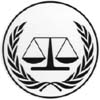 In addition to Canada Day, it’s also 7 years today since the Rome Statute of the International Criminal Court came into force.
In addition to Canada Day, it’s also 7 years today since the Rome Statute of the International Criminal Court came into force.
I’ve offered some very strong criticisms of the Rome Statute and the International Criminal Court (ICC), especially as it relates to Sudan and the Darfur Crisis. It’s not that an international judicial mechanism for addressing heinous crimes isn’t a progressive step. It’s the concern that this “justice” will be applied unequally and unevenly to different state parties.
The rule of law means that nobody is above the law, even the most powerful. And when dealing international law and the ICC, we’re unlikely to see some of the more politically contentious complaints against dominant states addressed in an equitable manner any time in the near future. This weakens the perception of the court in the developing world, and in their mind creates questions of its legitimacy.
With violence returning to the Southern Sudan, concerns about Africa’s longest civil war are also being resurrected.
An interesting and related discussion on the subject was covered recently on Change.org in What Right Do We Have to Advocate on Darfur, an interview with Neha Erasmus, who worked with NGOs in Darfur,
Let’s acknowledge that values vary from people to people. The application of Western values to knowledge therefore, will result in the production of Western (and not universally applicable) wisdom which may or may not be suitable or ‘wise’ in other contexts and this is where great care must be taken. Whilst you do not need to know what it’s like to be displaced to speak out about Darfur, having the wisdom of knowing what to do about Darfur is very different…
While I agree that there are basic shared human principles or ‘truths’, I don’t think they have been captured in human rights discourse, which is the guiding foundation for ‘international’ activism. Human rights discourse is an essentially individualistic framework, whereas most cultures of the global South (or third world) are formed on a communitarian value system.
In the second part of her interview, she explains how the voices of Sudanese people themselves should be central to any discussion on solutions to Darfur,
In terms of the strengthening of Sudanese voices (ouch by the way!), if you look at the Amel Centre or Khartoum Centre – how many people not intimately involved with Sudan have heard about them? How much power do Darfurians have in expressing their vision for the future of Darfur, compared with Save Darfur? There are very real challenges to successfully organise in Darfur and in Sudan in general. A lot of division has been created and manipulated, and civil society is generally very weak, mainly through disunity as well as the international donor community.
In order for Sudanese organisations to be heard, they have to have resources. In order to have resources they have to be very good at playing the organisational game of writing proposals (in a language is not their mother tongue), planning projects, creating up indicators etc. etc. What this does is stymie any real motivation, passion and drive that people have and create bureaucrats who are bent on sustaining their livelihood. If we want Sudanese to solve their problems, we should try to help them face these challenges.
In the third part of the interview, Erasmus discussed Who Gets to Define Justice? and the concept of equitably distributed justice,
I don’t think the question is about validation, or the “right to speak out”, but about what will work best and that looks to what the means are. Indian thinking emphasizes that means are not important, they are everything. Leadership by example will work every time, whereas we cannot count on success if we do not practice what we preach.
The International Criminal Court (ICC) is a perfect example. It is not the ICC that is problematic or impartial, but the entire international system which does not allow space for equitably distributed justice. The question of whether the [Bashir indictment] decision was right or not is debatable, but what has happened as a consequence is not. Bashir has had a basis to refute the ICC’s legitimacy and rally support and many African states (who form nearly one third of the signatories to the Rome Statute) have sided with him on this. Whatever the reasons, this is a sad loss.
